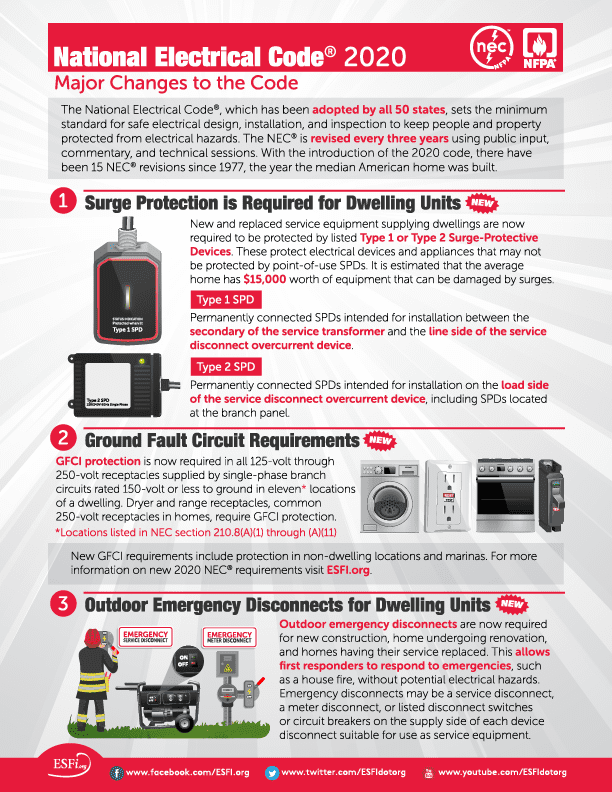Every three years the National Electrical Code is revised. The Code outlines the safe electrical installation minimal requirements. If you have an older home, it may not have an electrical system that cannot safely meet today’s electrical demands. When it comes time to renovate your home, think about maintaining a home that is electrically safe. Here are some electrical devices you should consider having installed in your home:
- Surge Protectors – Devices that protect against power surges can help you preserve the functionality of your electrical devices while ensuring their lifespan reaches its full potential.
- Tamper Resistant Receptacles – Tamper-resistant receptacles work the same as a normal receptacle, but they do have a safety feature – internal shutters – that only allow plugs to be inserted into the outlets and to keep foreign objects out.
- Arc-Fault Circuit Interrupters – Arc-fault circuit interrupters (AFCI) are available as a receptacle and as a circuit breaker and if there is a malfunction, they help prevent an electrical fire from starting. According to the Consumer Product Safety Commission, as many as half of the home electrical fires that occur each year could be prevented when AFCIs are used.
- Ground Fault Circuit Interrupters – Ground Fault Circuit Interrupters (GFCI) are available as receptacles and circuit breakers. They protect against electric shock. GFCIs are required in areas where electricity and water could come into contact with one another.
What Are The Code Requirements For 2020?
According to the 2020 National Electrical Code, https://www.esfi.org/resource/2020-national-electrical-code-731 all receptacles in homes, garages, outbuildings, and common areas of multi-family residences must be protected by electrical safety devices. Any service equipment now must be protected by surge protective devices that are type 1 or type 2. Any new home construction or any homes having service replaced are now required to have outdoor emergency disconnects.
- Bedrooms, Common Rooms, Hallways and Closets – They need AFCI protection.
- Bathrooms, Garages, and Outdoors – These areas need GFCI protection.
- Kitchens, Laundry Areas, Basements and Crawlspaces – Require both ACFI and GFCI protection.
If you are remodeling your home, or if you are building a home, make sure you enlist the help of a licensed electrician who is familiar with the National Electrical Code. If you live in an older home, you should have it inspected to make sure its electrical system can meet the current demands.

